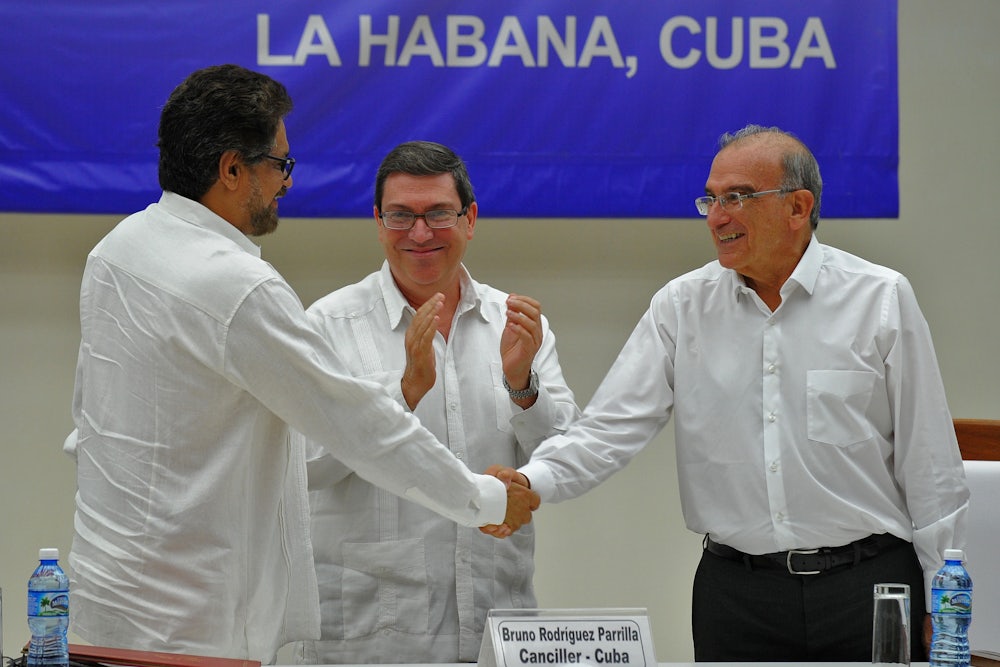Fifty-two years of bloodshed and terror. Four years of plodding, back-and-forth negotiations. Colombians have been waiting a long time for the armed conflict between the government and the Revolutionary Armed Forces of Colombia (FARC) to come to an end. But even after the announcement of a historic peace accord last night, they’ll still have to wait a little bit longer.
Before the terms of the deal—which include sub-agreements on such issues as the eradication of coca, agrarian reform, demobilization and disarmament, transitional justice, and political participation for reintegrated rebels—can be implemented, each party needs to seek approval from their respective constituencies.
On the rebel side, that’s considered little more than a formality. The FARC could not have survived this many decades dispersed across the Colombian jungle were it not for the discipline of its troops, and commanders have been briefing mid-level officers throughout the peace process. Dissent and even subordination are expected on some scale, but for the most part, the guerrillas seem ready to lay down their weapons.
But the outlook for civil society’s ratification is not nearly so certain. President Juan Manuel Santos explained Wednesday that, while he will submit the peace agreement before Congress later today, approval will depend on the outcome of a previously promised plebiscite set to be held October 2. Despite a broad coalition of support, the peace process has never been as popular in Colombia as it is among the international community. The rebels have done much to engender distrust, and former President Alvaro Uribe has been leading a furious propaganda campaign against the talks since the parties first sat down in Havana in 2012.
President Santos—who fielded congratulatory calls from President Obama, among others, last night—has staked his legacy on peace. But that’s not necessarily reassuring, given that his approval rating has been flirting with the single digits for months now. The plebiscite was his idea to begin with, back when it seemed like a clever way of easing pressure on the peace talks. But it’s not hard to imagine it becoming a broader referendum on his leadership. Recent polls suggest the afterglow from Wednesday’s announcement will be enough to carry an up-down vote. But other polls have come back showing the “no’s” on top. As sad as it is to say, after more than a half century of war, the prospect of peace with the FARC is coming down to an ill-informed political bet.
